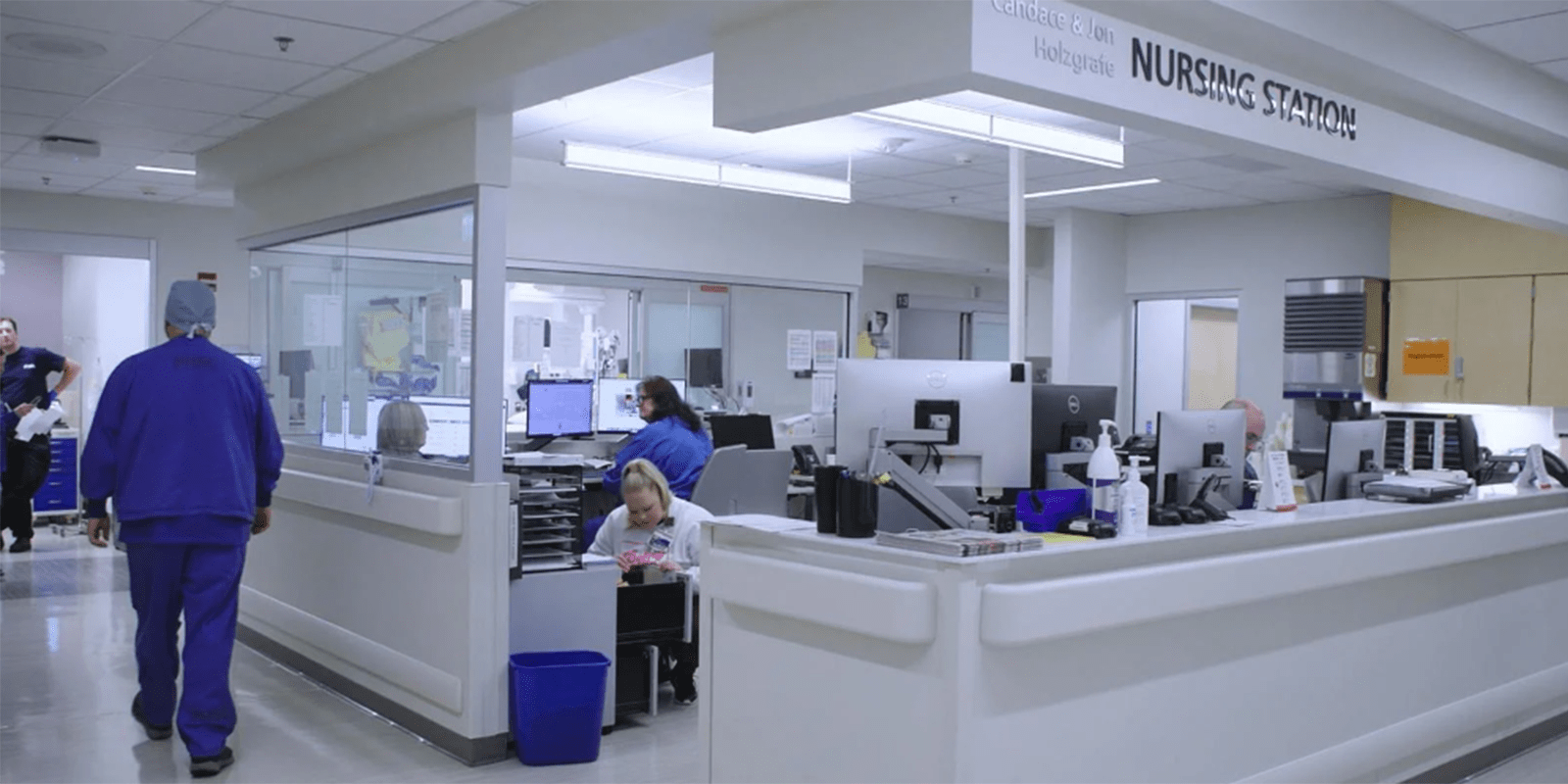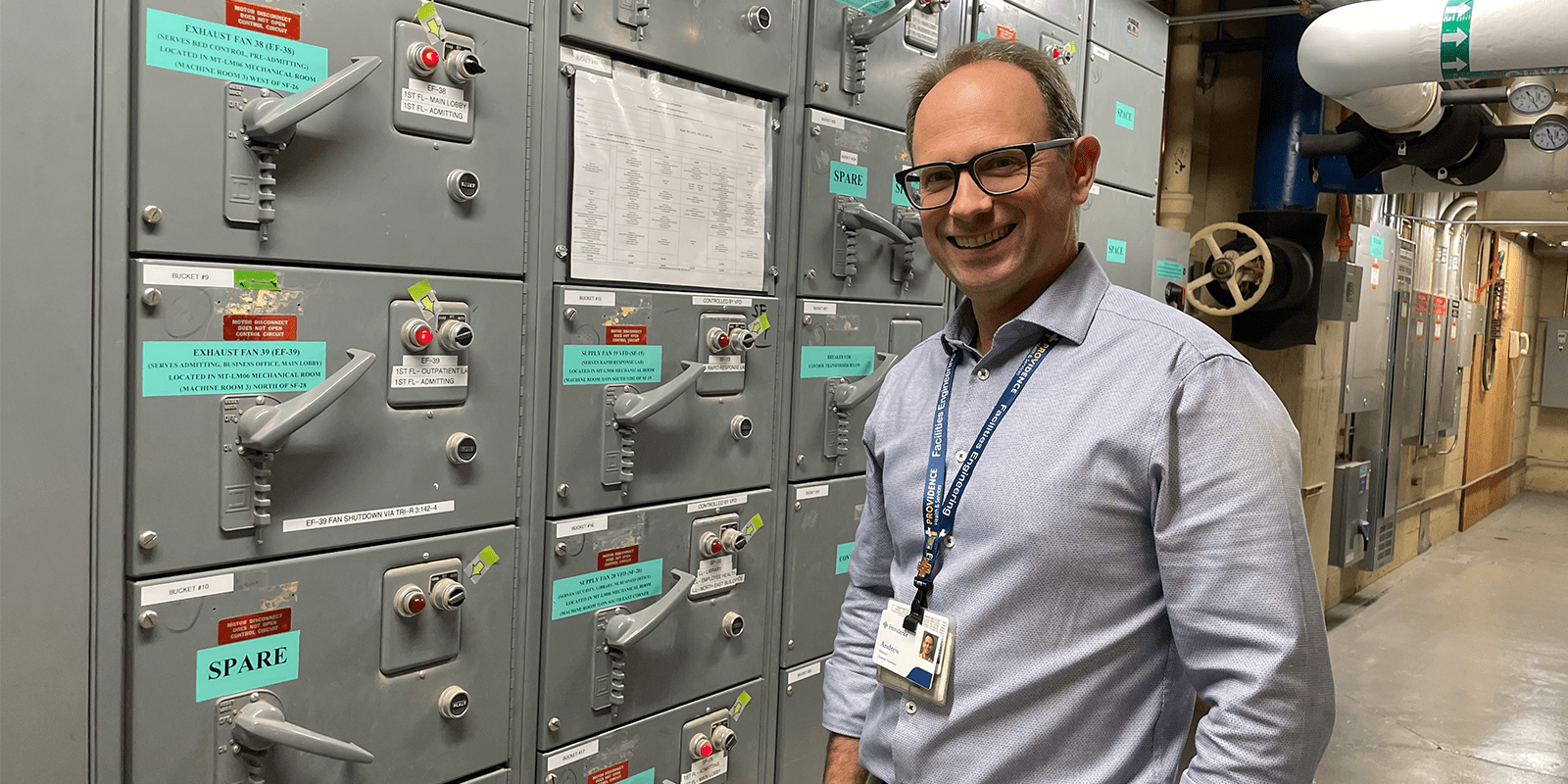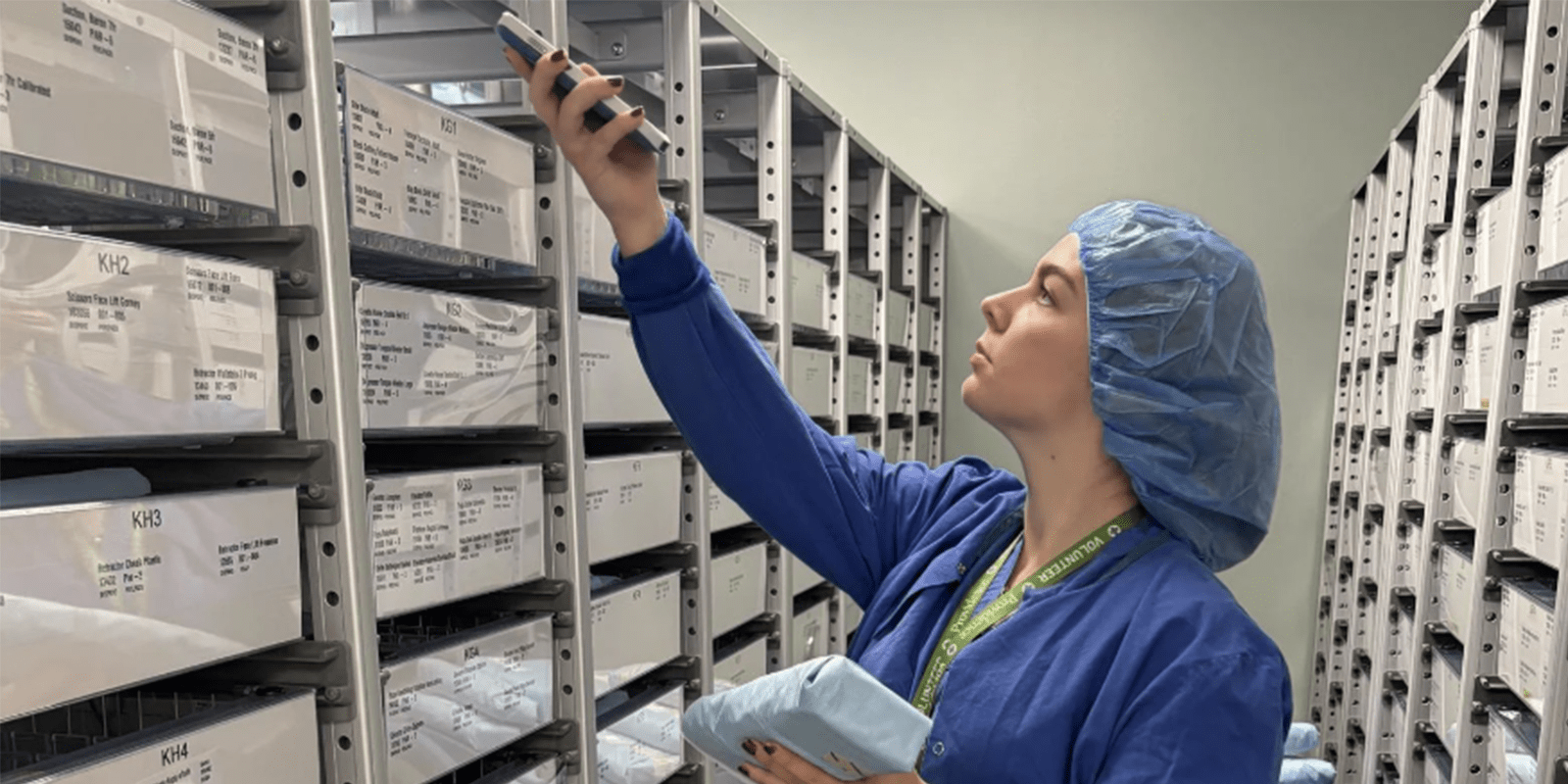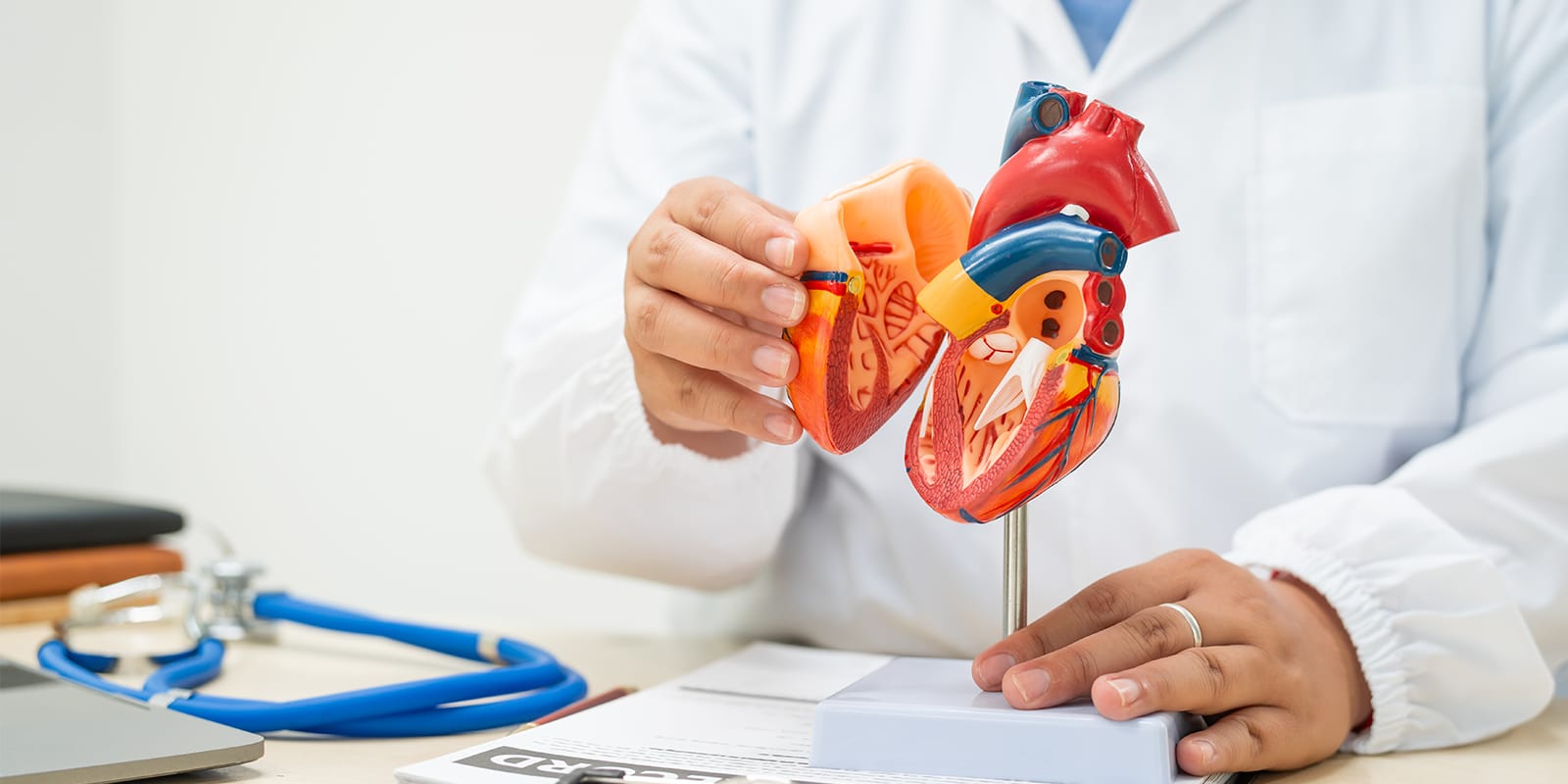Grief and gratitude: Dr. Schmidt’s remarkable story of recovery after crash
It had been a long drive from Portland on the evening of June 18, 2021. Nicole Schmidt, M.D., Providence Central Division chief medical information officer, was winding along a country highway just a few miles from her destination, her younger sister’s Myrtle Point home.
“I came around a curve and saw a car coming toward me in my lane,” Dr. Schmidt says. “I have no memory of the impact.”
She doesn’t remember much of anything for days afterward, but this is what happened after the crash:
- Passing motorists stopped and began helping, calling 911.
- Emergency crews arrived and used a just-purchased jaws of life to extradite her.
- She received initial care at the small hospital in Coquille, her injuries were critical and many: chest trauma, broken ribs, spine fractures and multiple fractures to the femur in both legs and tibia/fibula and foot on the right.
- She was airlifted to Sacred Heart Medical Center at Riverbend in Springfield, cared for in the ICU, intubated and eventually underwent the first of many surgeries.
And all of that was in the first few days of a journey to wellness that Dr. Schmidt is still travelling and will never finish. The journey is one of healing, learning and becoming.
Doctors were blunt with her parents and siblings in those first days, Dr. Schmidt likely would not survive. She did, but it has not been easy.

Her dreams were vivid in those initial weeks, drifting between her past work as a neonatologist in the NICU at Providence St. Vincent Medical Center to her reality of being bed-bound, tethered to life-saving machines in the Sacred Heart intensive care unit.
Her siblings and parents had gathered to support her, but deep into the COVID pandemic, only one could be with her at a time. Her mother and sister traded days staying by her side. Her younger sister Jessica, normally the quiet one, became the confident and assertive one, massaging Dr. Schmidt and urging her to relax and let the ventilator do its job.
As she became more aware in the ICU, she began insisting on a transfer to Providence St. Vincent, urging her Providence family colleagues to help make it happen. Ray Moreno, M.D., Providence St. Vincent chief medical officer and ED doctor, refused, knowing that she needed the trauma center care of Sacred Heart. Over half a year later, she thanked him – appreciating his wisdom, even though it wasn’t the answer she wanted in the moment. Multiple surgeries later she was ready for a long ambulance ride to Portland.
On July 7, she was transferred to Providence Acute Rehabilitation Center at Providence Portland Medical Center to begin the next stage of recovery – trying to regain some of what the crash had stolen.
“I was in a corner suite on the unit, a most amazing room,” Dr. Schmidt recalls. “It was filled with posters and encouraging notes from family, friends and work colleagues.”
For more than two weeks Dr. Schmidt worked hard with a variety of therapists, learning to transfer with legs that couldn’t bend and wouldn’t cooperate, feeling like she was failing all the time.

On July 25, Dr. Schmidt was discharged to her parent’s home where she had the support of family and friends to continue healing. At this point she could bear no weight on her legs, and could not even move them on her own.
Recovery from her polytraumas took all she had physically, emotionally, and spiritually. But it also opened a window into the realities and struggles of so many patients. The doctor who became a patient was learning some lessons.
“As a physician I expected my patients and families to have the capacity to understand and do what had to be done,” Dr. Schmidt says. “As a patient I realized how limited my ability was, how things were beyond my capacity – things I could have managed without a second thought while healthy, were now so difficult to understand or accomplish. The same is true for so many facing significant health challenges. Compassion can make the difference with patients.”
Little did Dr. Schmidt know she had suffered an additional injury in the crash that no one knew about but was slowly making itself known.
About the time she was transferred from Eugene to Portland she began experiencing nausea. It worsened dramatically over time, to the point she could not keep food or liquid down. She lost 50 pounds over the summer months. Even the smell of food made her sick to her stomach.
She began working with Michael Phillips, M.D., a gastroenterologist. Scans and scopes produced no answers. Imaging suggested it may be Crohn’s disease, so she started treatment for that. But, that seemed out of left field and didn’t fully fit. Dr. Phillips found a case report out of the UK, sharing the course of a patient who had intestinal injury after a car accident that matched her experience. He referred her to a subspecialist for evaluation. But a week later, before that appointment, with no way to keep water down, she called Dr. Phillips asking to be admitted to the hospital for an IV infusion of nutrition and hydration.
When the impact of the crash slammed her forward, the seatbelt severed her mesentery, which supplies blood to the bowel. With no blood supply, her bowel was diseased and dying. On Sept. 3, surgeons removed 20 centimeters of her large intestine and 40 centimeters of small intestine. Two weeks later she was at her parent’s home again, on intravenous feeding until she could eat again.
Her recovery continued.

She returned to work virtually, from her wheelchair, as chief medical information officer for the Oregon region on Dec. 15. “Before the accident I had a passion for quality improvement in my work, now my passion is even stronger particularly where technology is involved. I want to help remove barriers so our providers and caregivers can give care.”
After accessibility improvement were made, Dr. Schmidt returned to her own home Jan. 7, 2022, seven months after the crash.
She is home and back at work, and still recovering. She keeps a cane close for stability. She moves with a measured pace. A significant milestone was when she was able to kneel in her garden and plant new flowers. “It’s a process and not elegant, but I am able to do it.”
As she approaches the two-year anniversary of the accident, Dr. Schmidt reflects on the many stages of recovery she has experienced. At one point she needed to know about the person who hit her on that rural highway. He did not survive. She learned he struggled with mental health challenges and that his mother had reached out to police for help. She knows his family is grieving.
She did not realize her own loss was affecting her deeply until her pastor suggested she seek out grief counseling.
“That was 110% right on, grief therapy,” Dr. Schmidt says. “There was a massive amount that was lost; the loss of my life that I had before the accident. The first year I was in survival mode, now I realize these are my legs, these are the legs I will have for the rest of my life. It’s harder in the second year, there is the weight that this is real.”

Not long after returning to work, Dr. Schmidt read a Providence newsletter encouraging caregivers to take advantage of the mental health support services offered to help with the stress and challenges of COVID. She did, and the therapist helped Dr. Schmidt on her healing journey.
“Gratitude has been really important to me, to be able to recognize and appreciate what I have to be thankful for – it helps keep me moving forward.”
After two years, grief still hits Dr. Schmidt at unexpected times. So, too, does gratitude.




